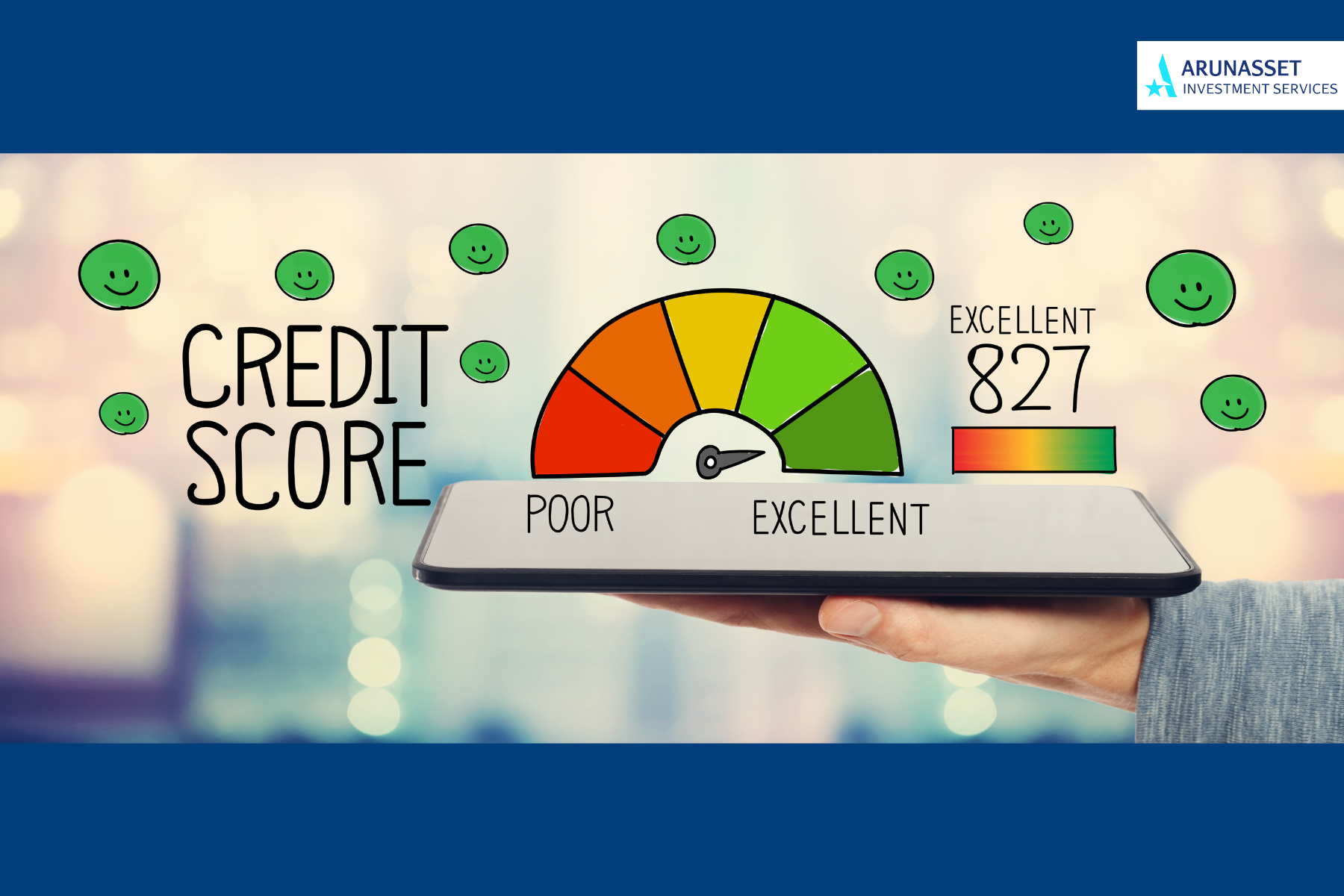The process of securing loans in India has become much smoother compared to decades ago. Today, when you apply for a loan, banks monitor your credit activities, including the number of loans you take, the amounts, the types of loans, and your repayment habits. All these factors contribute to understanding your credit behavior.
This credit behavior helps determine your eligibility for future loans. The monitoring and analysis of this information are done by credit bureaus in India. These bureaus are established to oversee and evaluate financial transactions, with their main task being to assign a credit score to businesses and individuals.
Credit scores have a significant impact on an individual’s ability to borrow. They serve as a crucial benchmark for lenders when determining loan approval, interest rates, loan amounts, and terms. A high credit score opens the door to better borrowing opportunities, while a low score limits access to credit and increases borrowing costs.
The Role of Credit Bureaus in India

One of the primary functions of a credit bureau is to create credit reports for individuals. A credit report provides details of your credit situation, including your credit score, which reflects your credit behavior and creditworthiness.
Credit bureaus collect and analyze the credit information of individuals and businesses. This data, sourced from lending institutions and data collection agencies, includes everything from credit loans to utility bills.
Licensed and regulated by the RBI, credit bureaus aim to ensure financial transparency and prevent fraudulent activities. Here’s a quick overview of their roles:
- Maintaining Transparency: Credit bureaus provide clear financial records to lenders and individuals through detailed credit reports. They also allow individuals to file disputes or complaints about any financial discrepancies.
- Preventing Bad Loans and Fraud: Credit bureaus assign credit scores to individuals based on their credit history, helping lenders assess the risk of lending. A poor score may label an individual as a risky candidate, reducing the chances of bad debts.
- Reducing Market Risks: A reliable credit reporting system reduces financial market risks.
- Collaborating with Lenders: Credit bureaus work with various financial institutions to assist them in making informed lending decisions.
List of Credit Bureaus in India

There are four key credit bureaus in India:
- TransUnion Credit Information Bureau (India) Ltd. (CIBIL):
Established in 2000, CIBIL is India’s oldest credit bureau, maintaining the credit records of over 600 million individuals and 32 million companies. Originally founded by the Reserve Bank of India (RBI), it later merged with TransUnion, a Chicago-based credit bureau. - Equifax India:
Part of Equifax Inc., one of the most reputable global credit bureaus, Equifax India received its Indian operating license in 2010. Besides credit reports, it offers risk analysis and portfolio scoring services. - CRIF High Mark:
Licensed in 2010, CRIF High Mark claims to be India’s first full-service credit bureau. It offers comprehensive credit data and services to lenders, MSMEs, and customers, along with analytics and software solutions for NBFCs, housing finance firms, insurers, and telecom providers. - Experian:
Experian became the first credit bureau in India to be accredited under the New Credit Information Companies (Regulation) Act of 2005. In addition to credit reports and scores, it provides marketing services and analytics tools for better decision-making by businesses and individuals.
Do Credit Scores and Reports Differ Across Bureaus?

Yes, credit scores may vary across credit bureaus due to differences in algorithms and scoring models. Although the data is generally the same (as all bureaus receive it from the same lenders), there may be slight variations due to:
- Timing of Data Submission: Different bureaus might have different sets of data at different times, causing small discrepancies in scores.
- Errors in Information: Sometimes, incorrect data or wrongly identified information can lead to score variations. In such cases, you can report the error for correction.
- Joint Applications: Inconsistencies in contact information, particularly for joint applications, can also cause discrepancies.
Assessing Creditworthiness

A credit score is essentially a numerical representation of an individual’s credit history and behavior. It summarizes factors like repayment habits, outstanding debt, and the length of credit history. Lenders use this score to gauge the likelihood that an individual will repay their loan on time. A higher credit score generally means the borrower is considered low-risk, which makes it easier for them to secure loans.
- High Credit Score (700 and above): A high score indicates responsible financial behavior, such as timely repayments and low outstanding debt. This makes it easier for individuals to borrow money on favorable terms.
- Moderate Credit Score (600-700): A moderate score suggests a slightly higher risk. The borrower may still get loans but could face stricter conditions, such as higher interest rates or smaller loan amounts.
- Low Credit Score (below 600): A low score is a red flag for lenders, indicating a high risk of default. Individuals with low scores may struggle to get loans, or if they do, they will likely face unfavorable terms like high interest rates, shorter repayment periods, or the need for collateral.
Before approving a loan, lenders closely analyze the credit score to assess how risky lending to an individual might be. While other factors, such as income and employment, are also considered, the credit score often plays a decisive role. Individuals with excellent credit scores are more likely to be approved for loans quickly and may also have access to larger loan amounts. Individuals with low credit scores often face rejection when applying for loans, as they are perceived as unreliable borrowers.
Credit scores directly affect the interest rates offered to borrowers. Lenders use the score to calculate the risk premium. Lenders offer lower interest rates to individuals with high credit scores since they are considered low-risk borrowers. Favorable interest rates lead to lower overall borrowing costs. Conversely, a lower score can result in higher interest rates. Lenders compensate for the perceived risk by charging more interest, making the cost of borrowing much higher for the individual. For example, someone with a credit score of 750 might secure a home loan at a 6% interest rate, whereas someone with a 600 score might face an 8% interest rate.
Borrowers with high credit scores are often trusted with larger loan amounts and longer repayment periods. Lenders assume that individuals with a strong credit history are likely to repay their loans without issue, so they are more comfortable offering higher loan limits. A lower credit score, however, may result in restricted borrowing capacity, as lenders may limit the amount to reduce their risk exposure.
How Can You Access Your Credit Score?
You can access your credit score instantly by visiting the websites of key credit bureaus. Click on the following links to check your credit score:
- Experian: Click here
- Equifax India: Click here
- CIBIL: Click here
- CRIF Highmark: Click here

